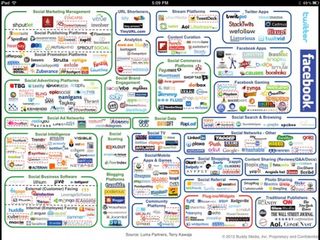I’d like to finish up the discussion we started last week on the use of talent pipelines for experienced agent recruiting. If you’re just jumping into the dialog, you may want to read the previous posts (Part 1, Part 2).
The basic premise of our discussion is the assertion that most experienced agents will want to know what it's like to work in your organization before they will even consider leaving their current company. More specifically, they must be assured that their personality and principles are aligned with your organization's culture and values so they will be comfortable in its work environment and able to continue their career success by performing at their peak.
One of the ways to do this is through the creation of a private social network. I’ve already had several questions from readers on what is a private social network and how could you (as the manager of a real estate office) possibly create one.
 What is a private social network? When most people think of online social networks, they think of companies like Facebook, LinkedIn, Twitter, Google+, and hundreds of others. Click the picture on the right to view an infographic that lists many public social networks and categorizes them by function.
What is a private social network? When most people think of online social networks, they think of companies like Facebook, LinkedIn, Twitter, Google+, and hundreds of others. Click the picture on the right to view an infographic that lists many public social networks and categorizes them by function.
A private social network is different. A private social network is a place on the internet that you “own” (or rent) and control. One of the best examples of these types of networks are country music bands. For example, take a look at the Zack Brown Band. His fan club is actually a private social network (in his case, he charges to be part of it).
You don’t have to be famous to have a private social network. There are many small neighborhoods that have social networks through a company called NextDoor. If you like cooking, you might want to join BakeSpace, as a private social network for people who share your interest. If you attend a large church, it probably has a private social network for those associated with the church. A good example in Seattle is the private social network of Mars Hill Church.
In essence, a private network can be built around any topic, group, business, etc. The only prerequisite for a private social network is having enough participants who share a common interest who are willing to participate in online conversations and sharing.
How do you build a private social network? Building an online social network for your office won’t be as easy as joining one, but there are many “off-the-shelf” options available if you want to give this a try. Visit this site to see a list of more than 50 companies who offer private social network software.
Here are some of the more well-known companies who offer products for building online social networks:
Yammer (in the news a lot lately because Microsoft just bought them)
While these companies are trying to make the process of setting up a private social network quick and easy, it does take some technical expertise to make it happen.
How do you administer and operate a thriving private social network? This is a topic that we’re going to take on in future WorkPuzzle discussions. In short, getting something established is the easy part. Creating a social network that is full of life and activity will be more difficult. More on that to come…
 Editor's Note: This article was written by Ben Hess. Ben is the Founding Partner and Managing Director of Tidemark, Inc. and a regular contributor to WorkPuzzle. Comments or questions are welcome. If you're an email subscriber, reply to this WorkPuzzle email. If you read the blog directly from the web, you can click the "comments" link below.
Editor's Note: This article was written by Ben Hess. Ben is the Founding Partner and Managing Director of Tidemark, Inc. and a regular contributor to WorkPuzzle. Comments or questions are welcome. If you're an email subscriber, reply to this WorkPuzzle email. If you read the blog directly from the web, you can click the "comments" link below.

